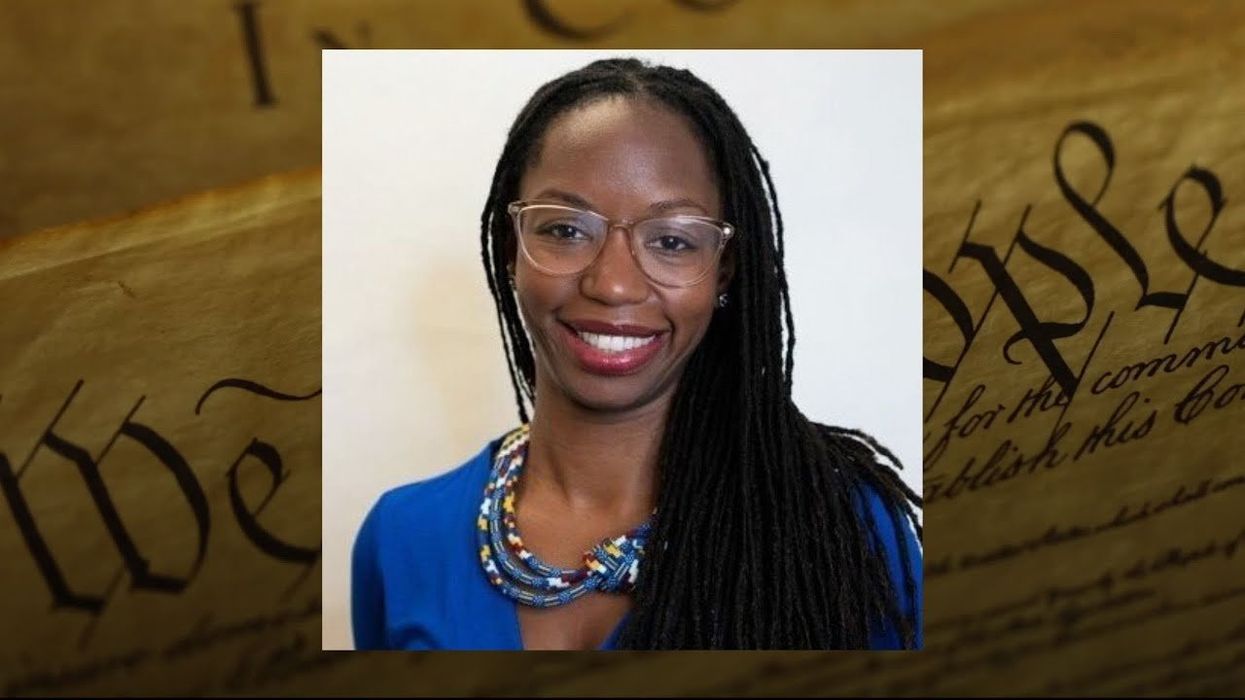The latest interview in this series features Liz Clay Roy, the CEO of Generation Citizen (GC), a national organization dedicated to civics education. Liz has led GC since 2021, as the organization has continued to train educators to teach community-based civics, while also elevating youth voice in everything it does. GC operates throughout the entire country and has worked with over 30,000 secondary school students in the past year.
This conversation was personal, fun, and deeply meaningful for me. I co-founded Generation Citizen in 2009 and served as its CEO through the end of 2020. I’m proud to see the organization thrive without me at the helm, and I think Liz has done a terrific job — not least in serving as a powerful spokesperson not just for GC, but for civics education writ large. While I have plenty of opinions about the role of civics education in the pro-democracy ecosystem, this interview focused on Liz’s perspective on where the field should head.
After being marginalized in American education for decades — arguably since the launch of Sputnik in 1957 redirected attention toward science and math — civics education is experiencing a resurgence. As corrosive public discourse becomes harder to ignore, civics has emerged as one of the few issues that garners bipartisan support. Still, like nearly every issue today, it has not escaped partisanship.
The agreement that young people need more civics education is easier to find than a consensus on what that education should entail. Should civics mean teaching the mechanics of government? The contours of the Constitution? How to participate in democracy? How to debate and dialogue with others? Should it be a discrete class or a way of structuring school itself?
Even within the pro-democracy field, civics attracts skepticism — some doubt its long-term impact, while others question whether education can address today’s political crises. Liz and I talked through these debates, and three themes stood out:
- Effective civics education combines skills and knowledge. One of the bifurcations that often occurs in the civics education field is a debate between a focus on civics knowledge (how government works) and civics skills (how to participate as a citizen in our democracy). Those focusing on knowledge emphasize that young people must understand the very foundations of how our government works above all else. Those who focus on skills adopt a more comprehensive definition of civics, noting, for example, that a chemistry class is about more than learning the Periodic Table.
Liz rejects this dichotomy: she believes knowledge and skills reinforce each other, especially when learning is experiential.
“The pairing of civic skills and civic knowledge development can support each other in really powerful ways, and also help young people develop civic virtue and civic disposition. They also help make meaning of and give young people a greater connection to why civic knowledge matters.
Because in fact, (students) have a positive goal that they're trying to work towards in their community, and they can see the relevance of the knowledge in real time.”
- Civics education is about creating the conditions that enable young people to trust institutions. A central challenge for the pro-democracy field is Americans’ declining trust in public institutions. This problem is especially acute among young people, many of whom feel let down by local, state, and federal governments as they face uncertain job markets and unaffordable housing.
Liz stresses that civics education is not about convincing young people to trust institutions, but rather about creating the conditions for institutions to earn that trust.
As Liz notes, “I feel firmly, it is not our responsibility to make young people trust Congress, or make young people trust their governor….What is so important is that we want to support young people in trusting their own eyes and ears, and in how they relate to government and other institutions.
What I do believe is that through the experiential civics approach that is focused on local and state government, which Generation Citizen is, I believe we create conditions for government to earn the trust of young people in their communities.” Liz notes that this occurs through real and authentic engagements and dialogues that young people have with leaders of institutions, like elected officials.
- Civic hope matters: Some argue that democracy’s challenges are too urgent for long-term approaches, such as civics education. Liz pushes back, noting that despair — economic, social, and civic — is pervasive among young people. Effective civics education, she argues, can provide a sense of agency and hope.
“The fact that there is more despair in our society today, both economic despair and despair as it relates to mental wellness or well-being, but also a sense of civic despair and a sense of giving up.
Because there is sometimes an expectation or an idea that civic values can be fully learned in the home, I think we have to take quite seriously the notion that if we have a couple of generations of adults who are feeling a sense of civic despair, who are lacking in trust in institutions, who don't feel a sense of belonging.
We have to recognize that public schools are the first public square that our young people engage in, and that should be a space in which there are both values and supports for students to learn in ways that support a sense of civic hope, a sense of belonging in one's community, and create conditions for building trust.”
Liz’s words make a compelling case for civics education as a vital tool in rebuilding democracy. I left our conversation grateful for her leadership — both within the civics education movement and across the broader democracy ecosystem.
Scott Warren is a fellow at the SNF Agora Institute at Johns Hopkins University. He is co-leading a trans-partisan effort to protect the basic parameters, rules, and institutions of the American republic. He is the co-founder of Generation Citizen, a national civics education organization.




















